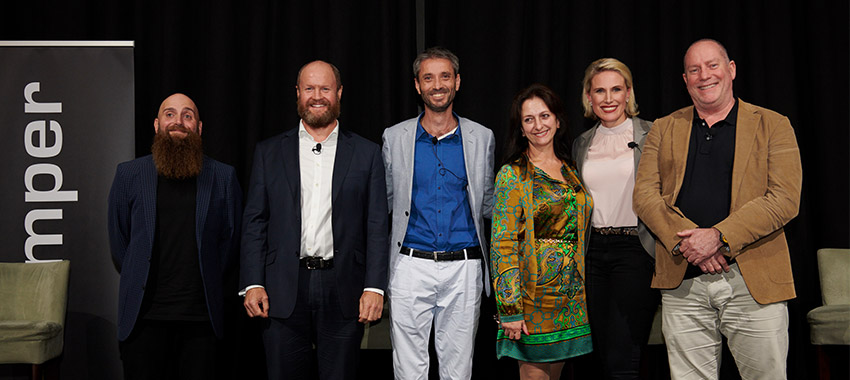
Businesses are increasingly looking to purchase commercial premises and turning to non-bank lenders to access relevant finance, according to several leading players in the commercial finance space.
Speaking at “The secrets to being a successful commercial broker” event, hosted by private commercial lender Semper in Sydney on Tuesday (23 March), brokers and lenders discussed what it takes to be a good commercial broker and the top trends they were seeing in the market.
The type of commercial borrowers in market
Speaking to The Adviser ahead of his appearance on the panel discussion, broker and managing director of Sydney-based brokerage Equilibria Finance, Anthony Landahl, outlined that one of the trends he was seeing at the moment was an uptick in commercial property purchases.
Mr Landahl said: “We’re seeing a shift in behavior in terms of people who are looking at purchasing commercial property or those looking at leasing and reviewing their premises, reviewing their location, and also reviewing the infrastructure within the office.
“There are a lot of larger businesses thinking about downsizing from the city and that’s giving opportunities to businesses who might have been outside of the city areas to come into the city for the first time.
“There’s also a lot of businesses that are looking at locating and scaling their businesses down or locating into other areas as well, where they may not have to be in the city.”
Mr Landahl continued: “Especially in that mid-tier office space, there seems to be a lot of demand in the marketplace, and even though the yields have been dropping, it feels like there’s still a lot of demand for commercial premises in the city in that mid-tier space. And I think that this is partly because some of the larger organizations are moving out after COVID and shrinking their footprint, and partly because they’re seeing it as an opportunity to reconfigure the space.”
Nick Harper, director of non-bank origination group Fuzion Capital, concurred, adding that his company had seen a rise in people looking to buy their own buildings.
“They’re looking to move into their own establishment, whereas previously there may have been renting. Prices have come down so much – especially in Melbourne, prices have come down dramatically – so they’re now able to move in and buy,” he said.
“This is also because the repayments are good because money is cheap, so we’re finding a lot more people are actually realising they can buy for the same money, or less, as renting. We’re seeing a lot of buyer activity in the sub-$2 million bracket when it comes to office space.
“So, when they’re buying commercial property for that cheap, and getting money at 3-4 per cent, why wouldn’t you?” Mr Harper asked.
Judy Corak, co-founder of lender and broker efunder, told The Adviser that city developers had slowed down as an effect of COVID as they couldn’t “make the pre-sales they had achieved before the pandemic” given that their prime target market – overseas buyers – had largely dried up following the slowdown in immigration and concerns over overseas buyers being able to raise funds.
“Instead, they are relying on local buyers, but what we’ve seen is a lot of people going into the regional areas. So, especially for land and package, it’s going gangbusters. We see it all the time,” Ms Corak said.
Non-banks filling a void
According to director and founder of Semper, Andrew Way, many business owners are also currently looking to use their own residential properties as equity for their borrowings and increasingly turning to non-bank lenders to help them access finance.
Mr Way suggested that many small businesses were not able to access finance from the banks due to long turnaround times.
“We’re seeing a change in borrower type. People who are asset-rich are coming to us, the borrowers who were typically a bank customer. But they’re not going to the banks because they just can’t sell their assets quickly enough.
“We’re seeing a lot of opportunity-takers who are always motivated by time and are already taking advantage of other people’s disadvantage (the businesses that were operating pre-COVID but whose assets are now up for sale) and the banks are just not there to help them in the time required. But we are, as are many non-banks. So, we are seeing the opportunity-takers circling now.”
Mr Harper said that even government-backed schemes, such as the Coronavirus SME Guarantee Scheme, were resulting in three-month turnarounds, “which is far too long”.
Robert Grul, partner of asset finance sourcing company G&H Financial, agreed, stating that while there had been government guarantees, that hadn’t translated to businesses “getting money”.
“We’ve been using non-bank lenders, whether it be to release equity from directors’ properties because their business had some form of hardship and therefore they don’t qualify for any of the bank’s products, or to access a form of working capital to get through what has been for some businesses, a tough year, and for some businesses, a really, really good year.”
When asked what tips they would provide brokers looking to write commercial finance at the moment, Mr Way suggested: “The main thing is, if you could just get a decent asset and liability statement, you would have a better understanding of the business’s position to start with, and that will get you on the right track.”
Broker delegates at the Semper panel discussion, moderated by Sascha Moore, director of Create Design & Marketing, also heard how commercial brokers were structuring and writing their deals and their top tips for residential brokers looking to operate in this space for the first time.
[Related: Finance, guaranteed?]
